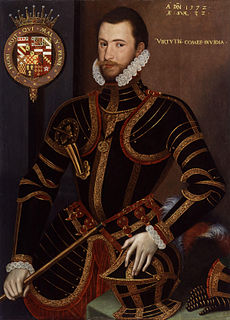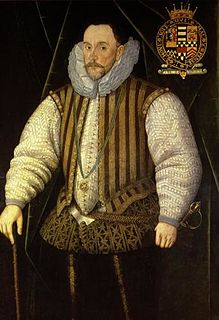| Vice Admiral of South Wales | |
|---|---|
| Country | |
| Branch | |
| Type | Naval administration |
| Role | and Naval Jurisdiction. |
The Vice-Admiral of South Wales was responsible for the coastal defence of South Wales.
| Vice Admiral of South Wales | |
|---|---|
| Country | |
| Branch | |
| Type | Naval administration |
| Role | and Naval Jurisdiction. |
The Vice-Admiral of South Wales was responsible for the coastal defence of South Wales.
As a Vice-Admiral, the post holder was the chief of naval administration for his district. His responsibilities included pressing men for naval service, deciding the lawfulness of prizes (captured by privateers), dealing with salvage claims for wrecks and acting as a judge.

Prize is a term used in admiralty law to refer to equipment, vehicles, vessels, and cargo captured during armed conflict. The most common use of prize in this sense is the capture of an enemy ship and her cargo as a prize of war. In the past, the capturing force would commonly be allotted a share of the worth of the captured prize. Nations often granted letters of marque that would entitle private parties to capture enemy property, usually ships. Once the ship was secured on friendly territory, she would be made the subject of a prize case, an in rem proceeding in which the court determined the status of the condemned property and the manner in which the property was to be disposed of.

A privateer is a private person or ship that engages in maritime warfare under a commission of war. The commission, also known as a letter of marque, empowers the person to carry on all forms of hostility permissible at sea by the usages of war, including attacking foreign vessels during wartime and taking them as prizes. Historically, captured ships were subject to condemnation and sale under prize law, with the proceeds divided between the privateer sponsors, shipowners, captains and crew. A percentage share usually went to the issuer of the commission. Since robbery under arms was once common to seaborne trade, all merchant ships were already armed. During war, naval resources were auxiliary to operations on land so privateering was a way of subsidizing state power by mobilizing armed ships and sailors.

A judge is a person who presides over court proceedings, either alone or as a part of a panel of judges. The powers, functions, method of appointment, discipline, and training of judges vary widely across different jurisdictions. The judge is supposed to conduct the trial impartially and, typically, in an open court. The judge hears all the witnesses and any other evidence presented by the barristers of the case, assesses the credibility and arguments of the parties, and then issues a ruling on the matter at hand based on his or her interpretation of the law and his or her own personal judgment. In some jurisdictions, the judge's powers may be shared with a jury. In inquisitorial systems of criminal investigation, a judge might also be an examining magistrate.
In 1863 the Registrar of the Admiralty Court stated that the offices had 'for many years been purely honorary' (HCA 50/24 pp. 235-6). Appointments were made by the Lord High Admiral when this officer existed. When the admiralty was in commission appointments were made by the crown by letters patent under the seal of the admiralty court. [1]

The Lord High Admiral is the titular head of the Royal Navy. Most have been courtiers or members of the Royal Family, and not professional naval officers. The office of Lord High Admiral is one of the nine English Great Officers of State.
Source (1559-60): [2]
Source (1660-1754): [3]

Walter Devereux, 1st Earl of Essex, KG, was an English nobleman and general. From 1573 until his death he fought in Ireland in connection with the Plantation of Ulster, where he ordered the Rathlin Island massacre. He was the father of Elizabeth I's favourite of her later years, Robert Devereux, 2nd Earl of Essex.

Henry Herbert, 2nd Earl of PembrokeKG was a Welsh nobleman, peer and politician of the Elizabethan era.

William Herbert, 3rd Earl of Pembroke was an English nobleman, politician, and courtier. He was the son of Henry Herbert, 2nd Earl of Pembroke and his third wife Mary Sidney. Chancellor of the University of Oxford, he founded Pembroke College, Oxford with King James I. He was warden of the Forest of Dean, and constable of St Briavels from 1608 to 1630. He served as Lord Chamberlain from 1615 to 1625. In 1623, the First Folio of William Shakespeare's plays was dedicated to him, together with his brother, Philip Herbert, 1st Earl of Montgomery.

Philip Herbert, 4th Earl of Pembroke and 1st Earl of Montgomery, KG was an English courtier, nobleman, and politician active during the reigns of James I and Charles I. Philip and his older brother William were the 'incomparable pair of brethren' to whom the First Folio of Shakespeare's collected works was dedicated in 1623.
This is a list of people who served as Lord Lieutenant of Monmouthshire. Before the English Civil War, the lieutenancy of Monmouthshire was held by the Lord Lieutenant of Wales, except for the period from 1602 to 1629, when it formed a separate lieutenancy in conjunction with Glamorgan. After the English Restoration in 1660, it was again held by the Lord Lieutenant of Wales from 1672 until 1694, when the twelve central Welsh lieutenancies were divided. After 1715 each office holder was also Custos Rotulorum of Monmouthshire. The combined position was finally abolished on 31 March 1974 and replaced with that of the Lord Lieutenant of Gwent.
This is an incomplete list of people who have served as Lord Lieutenant of Somerset. Since 1714, all Lord Lieutenants have also been Custos Rotulorum of Somerset.
This is a list of people who served as Lord Lieutenant of Glamorgan. After 1729, all Lords Lieutenant were also Custos Rotulorum of Glamorgan. The post was abolished on 31 March 1974.
This is a list of people who have served as custos rotulorum of Monmouthshire.
This is a list of people who have served as Custos Rotulorum of Glamorgan.
This is a list of people who have served as Custos Rotulorum of Pembrokeshire.

The Court of the Council in the Dominion and Principality of Wales, and the Marches of the same, commonly called the Council of Wales and the Marches was a regional administrative body based in Ludlow Castle within the Kingdom of England between the 15th and 17th centuries, similar to the Council of the North. Its area of responsibility varied but generally covered all of modern Wales and the Welsh Marches of Shropshire, Herefordshire, Worcestershire, Cheshire and Gloucestershire/Bristol.
The holder of the post Vice-Admiral of Cumberland was responsible for the defence of the county of Cumberland, England.
The holder of the post Vice-Admiral of Devon was responsible for the defence of the county of Devon, England.
The Vice-Admiral of the coast of Durham was responsible for the defence County Durham, England.
The Vice-Admiral of Dorset was responsible for the defence County of Dorset, England.